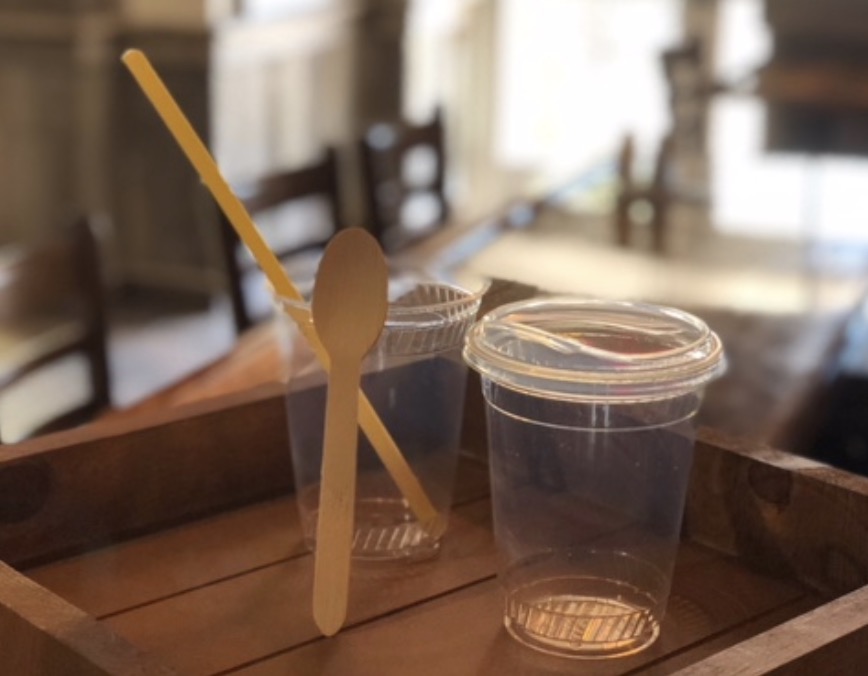
Plastic straws are quickly becoming an environmental taboo across the country, and now Rollins has joined the movement.
Plastic straws have been removed from all food services on campus, including Bush, Cornell, and the Campus Center. Paper and pasta straws will be available upon request and cups now have lids with openings to drink from directly.
To give students a plastic straw-free environment when they arrive to campus, Rollins Dining Services installed the changes this summer alongside the Sustainability Program, the office that oversees environmental campus initiatives.
Rollins Dining Retail Manager Heather Wilson stated that when she was “reading the market news and sees that one school [imposed a ban on plastic straws],” she asked, “why can’t we do it.” She said that the change will prevent the approximate 90,000 straws that were used at Rollins last year from ending up inside landfills and in the organs of marine life.
Gabbie Buendia ‘19, co-lead sustainability coordinator, said, “After the Sustainability Program successfully partnered with facilities and dining services to remove plastic bags… plastic straws seemed like a great next step.” The Sustainability Program also runs the bike program, a free three-day bike rental program that students and faculty can use, the urban farm located around Elizabeth Hall, which often supplies food to the campus center, and a group of students that promote environmental education called EcoReps.
On the other hand, there have been some concerns about how these changes could impact students with disabilities that rely on bendable plastic straws. “Paper straws will be available at all locations upon request” for those who cannot or do not want to use the replacement lids, Wilson said. In addition, Rollins will be opening up a Tar Nation Juice Bar with pasta straws. “If we get people who are allergic or [need] gluten free… we will have paper straws available,” she said.
However, paper straws may not be a simple solution for people with accessibility needs. Plastic straws are able to be bent and kept at an angle for people with limited mobility; straws made out of other material cannot do this. In addition, plastic is heat-resistant and durable, while paper straws are not.
The driving force for the ban on plastic straws was the negative impact of plastic waste on the environment. It is estimated that Americans use over 500,000 plastic straws a day, according to EarthDay.org. Rollins only recycles plastics types one and two, and straws do not fall into these categories. Therefore, straws are thrown in with regular waste and are never recycled, then accumulating in landfills or the ocean, where they are frequently consumed by marine life.
The movement to ban plastic straws became more known after a video of a turtle with a plastic straw stuck in its nostril became viral. The movement’s recent gains have involved many famous companies like Hilton, Marriott UK, American Airlines, SeaWorld Entertainment, Royal Caribbean, and Disney.
Students will receive a flyer about Rollins’s decision to ban plastic straws and how students can protect the environment outside of the already initiated campus services.

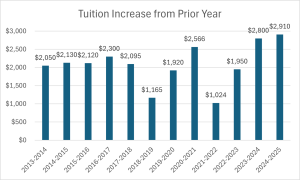

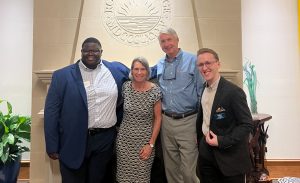

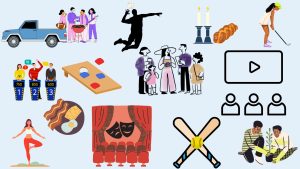


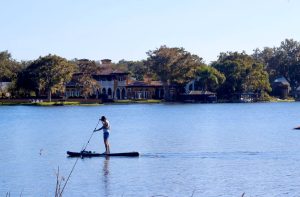
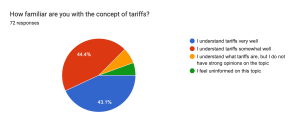

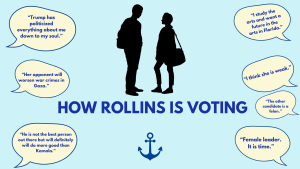

Be First to Comment